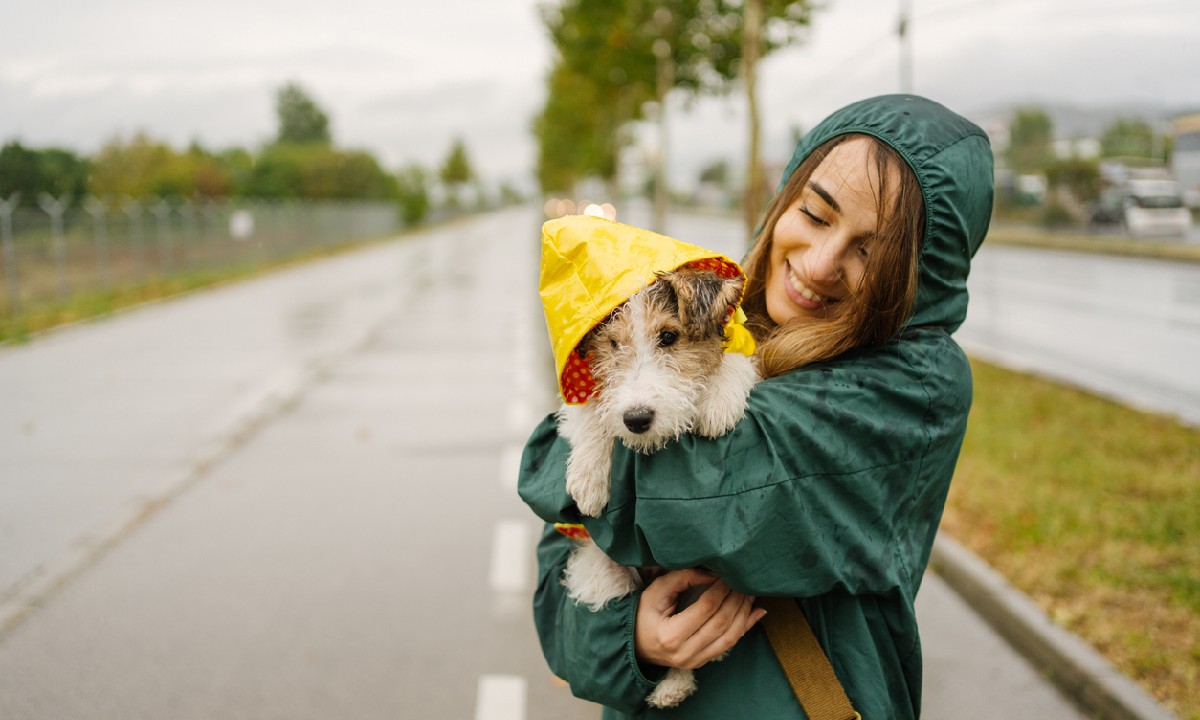Should Your Dog Be Protected When Outside in the Rain?

Rainy days can affect your dog’s physical and mental health. Being a pet owner comes with a lot of responsibility; you should ensure that your dog endures the rainy season in the best of health and elegance.
If your dog is exposed to cold, rainy weather for an extended period, its breathing may get inflamed, which could result in pneumonia. Younger and older dogs and those with weakened immune systems are more prone to suffer from this. Wheezing or breathing difficulties, lethargy, a cough, and a runny nose are all symptoms of dog pneumonia. It can be life-threatening if not treated, so protecting your dog in the rain is essential.
WHAT HAPPENS IF YOUR DOG IS NOT PROTECTED IN THE RAIN?
If it is raining and cold outside, you must protect your dog and ensure that your dog stays warm. You must also ensure that your dog is protected from rainy water, as puddle water carries a number of chemical and biological toxins that can be detrimental to your dog’s health.
One of the simplest ways to keep your dog safe and healthy while raining is by picking an ideal dog rain jacket or finding a shelter that helps reduce the amount of rainfall your dog will suffer. Remember if you don’t protect your dog while it’s raining outside, they can suffer multiple health complications.
Puddles may look like fun for your dog, but they often contain harmful substances like antifreeze, Giardia, and the germs Leptospira. Leptospira and Giardia originate in animal waste, specifically in urine and feces. Puddles can cause the following:
- Diarrhea
- Vomiting
- Loss of hunger
- Lethargy
Leptospirosis with antifreeze can cause kidney damage, and antifreeze ingestion can result in convulsions and coma. The bacteria responsible for the Giardia protozoa and Leptospirosis that cause water poisoning are found in animal waste like urine and feces.
The most common things that poison rainwater are other animals or their urine and feces because this is where the bacteria that cause Leptospirosis and the protozoa that cause Giardia lives. When your dog licks or drinks the water, these germs enter your dog’s digestive system and cause it to get sick. Rainwater spreads them out over a larger area and makes them gather in puddles. Even a tiny amount of the highly poisonous chemical ethylene glycol in antifreeze can be very harmful to your dog’s health.
HOW TO LOOK AFTER YOUR DOG WHEN IT RAINS
Keep the dog’s fur fry
Damp or wet fur is an ideal breeding place for fungi and bacteria. Be sure to rub your dog down before and after your stroll. Also, you can blow-dry the dog’s fur to make it resistant to moisture.
Wash your pet’s paws
Paws can easily host germs or disease-carrying vectors. The paws are always in touch with the ground. That’s why they are more susceptible to infection. When the weather turns wet, it’s best to provide your dog with a pair of waterproof shoes or boots. This will prevent grass, mud, water, and insects from entering their paws. If your dog is not used to paw-wear, simply wipe and clean his paws after the stroll.
There’s nothing more satisfying during the rainy season than having a dry, warm bed. If your dog is used to having fun on the patio or balcony, you should provide a covered area with dry bedding. You must frequently change the bedding to prevent the growth of bacteria.
THE BOTTOM LINE!
Taking the necessary precautions before going outside in poor weather is crucial. Protecting your dog while it is raining is vital to prevent health problems that could possibly be fatal. If you know that it’s going to rain, it’s imperative that your dog wears a dog rain jacket.
